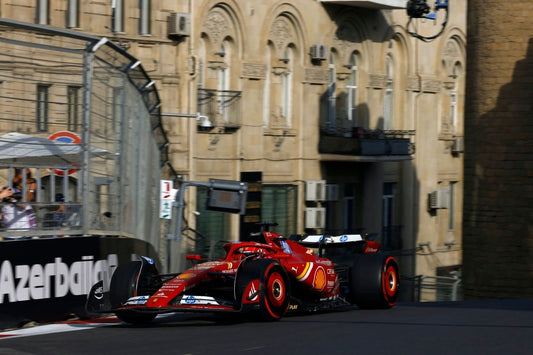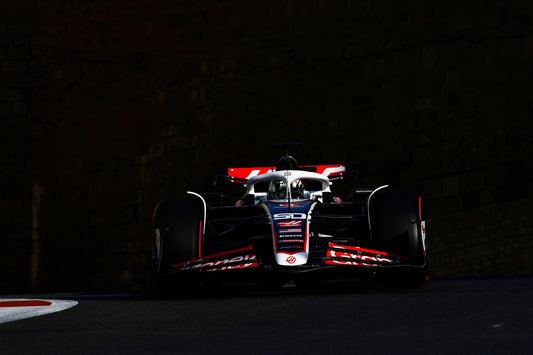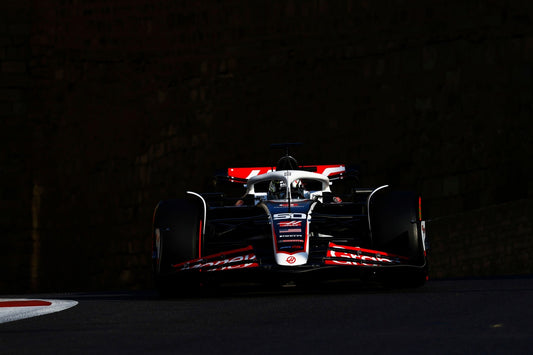The Unmatched Reign: F1's Record for Consecutive World Titles
Manish
Max Verstappen is currently enjoying an unprecedented period of dominance in Formula 1, having secured the last three drivers' championships. The Dutch driver is already leading the 2024 standings and is on track to claim his fourth consecutive title, a feat achieved by only four other drivers in F1 history. Let's take a closer look at these legendary drivers and their remarkable championship runs.
Michael Schumacher: The Record-Breaker
Michael Schumacher holds the record for the most consecutive F1 drivers' championships, winning an astonishing five titles in a row from 2000 to 2004. His dominant run with Ferrari began after a risky move to the struggling team in 1996. Schumacher's arrival, along with key personnel like designer Rory Byrne and technical director Ross Brawn, transformed Ferrari into a championship-winning powerhouse.
During his five-year reign, Schumacher achieved incredible statistics:
- 48 race wins from 85 starts
- 40 pole positions
- 66 podium finishes
Schumacher's most dominant season came in 2004 when he set a then-record of 148 points, winning 12 of the first 13 races. His era of dominance ended in 2005 when regulation changes caused Ferrari to struggle, paving the way for Fernando Alonso to become the new world champion.
Lewis Hamilton: The Modern Era Dominator
Lewis Hamilton secured four consecutive titles from 2017 to 2020, breaking many of Schumacher's long-standing records in the process. Hamilton's dominant period with Mercedes saw him achieve:
- 42 race wins from 78 starts
- 37 pole positions
- 61 podium finishes
Hamilton's run began after a disappointing 2016 season when he lost the championship to teammate Nico Rosberg. With Valtteri Bottas as his new teammate, Hamilton faced challenges from Ferrari's Sebastian Vettel in 2017 and 2018 but ultimately prevailed. The 2019 and 2020 seasons saw Mercedes return to outright dominance, allowing Hamilton to cruise to his third and fourth consecutive titles.
Sebastian Vettel: Red Bull's Young Champion
Sebastian Vettel claimed four world championships in a row with Red Bull from 2010 to 2013. His dominant period included:
- 34 race wins from 77 starts
- 40 pole positions
- 53 podium finishes
Vettel's first title in 2010 came down to the wire, but his subsequent championships were more straightforward. His most dominant season was 2013, which ended with a record-breaking run of nine consecutive race wins. Vettel's reign ended in 2014 with the introduction of turbo-hybrid engines, which Mercedes mastered.
Juan Manuel Fangio: The 1950s Legend
Juan Manuel Fangio won five world championships between 1954 and 1957, with four consecutive titles from 1954 to 1957. Fangio's remarkable achievement included:
- 17 race wins from 28 starts
- 18 pole positions
- 21 podium finishes
What makes Fangio's accomplishment even more impressive is that he achieved this success with three different teams: Maserati, Mercedes, and Ferrari. His final championship came at the age of 46, showcasing his enduring skill and adaptability.
Max Verstappen: The Current Dominant Force
Max Verstappen's ongoing period of dominance began in 2021 and has continued through 2023. His statistics during this run are staggering:
- 44 race wins from 66 starts
- 29 pole positions
- 56 podium finishes
Verstappen's first title in 2021 came after a intense battle with Lewis Hamilton, decided in controversial circumstances at the final race. Since then, Red Bull's mastery of the new regulations has allowed Verstappen to dominate in a manner never before seen in F1. He has set numerous records, including most wins in a season (19 in 2023) and most consecutive race victories (10 in 2023).
As Verstappen continues his quest for a fourth straight title in 2024, he looks set to join this elite group of F1 legends, further cementing his place in the sport's history.




